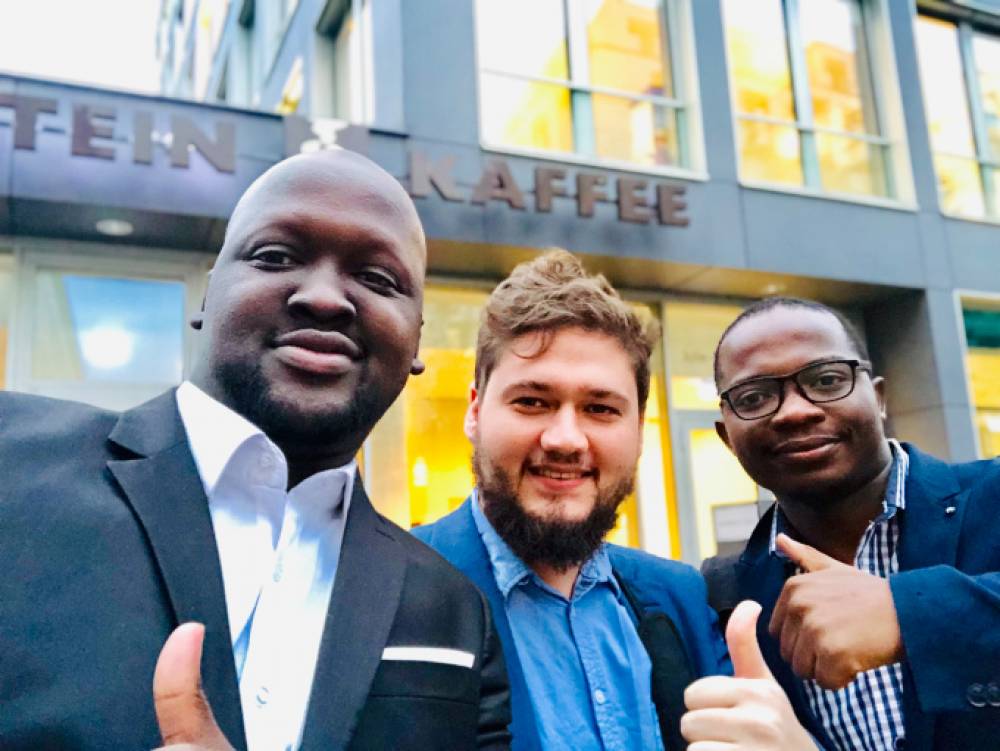
Khula, A South African Company, Raise $1.3 Million In Seed Funding To Expand Its Agriculture Ecosystem Solution
Khula, a South African company, raise $1.3 million in seed funding to expand its agriculture ecosystem solution
The application of modern agricultural technologies is gaining momentum across Africa, slowly but steadily. Both domestic and international investors continue to see more opportunities in the sector, as well as how technology can quickly propel it into the projected trillion-dollar economy.
Khula, a South African startup that provides tools and platforms to support the growth of businesses in the agriculture supply chain, has raised $1.3 million in a seed round to expand its operations across the country, according to the company. Initiators of the round included AECI, one of Africa's largest agrochemical companies, and E Squared Investments, which led the round.
To identify problems, investigate them, conduct research, and analyze the results – this is the Khula way
Khula, a startup founded in 2019 by Karidas Tshintsholo, Matthew Piper, and Jackson Dyora, aspires to address all of the industry's most serious problems at their root causes.
In their investigation into the underbelly of the sector, Tshintsholo and Piper, who had previously been business partners before co-founding Khula with Dyora, discovered that there are far more anomalies going on than they had previously realized.
As a result, despite Africa occupying 60 percent of the world's farmable land, it produces less agricultural produce when compared to countries where a larger portion of the land is desert.
The fact that we have more land than any other continent didn't make sense to me. In addition, nearly everyone on the continent is a farmer, and we are purchasing more food than we are selling at the moment. When we considered the significant competitive advantage agriculture provides, we were perplexed as to how it was possible,” Tshintsholo told TechCrunch.
As they conducted additional market research, they came to the conclusion that small-scale farmers are being shortchanged by virtually every stop along the distribution chain. This is not a problem unique to the South African market; rather, it is a problem that African smallholder farmers face on a regular basis. Right from planting to marketing and selling to transportation of their goods and produce – particularly when it comes to selling, they are confronted with persistent challenges.
“I believe it was when we started playing detective that the lightbulb went off for us. The farmers we followed followed the same path that large corporations listed on the stock exchanges took: they went to these physical markets, purchased the product, and then sold it to the formal market. They'd buy it for R3.50 and sell it for R11.00, a profit of R3.50. They literally added nothing to the value chain other than the act of picking up and dropping off the product.”
Because most farmers lack direct access to end-users, they are forced to downsell to wholesale aggregators, who in turn distribute to retailers in order to survive. By the time the product reaches the consumer, it is almost certain to have accrued a minimum of a 200 percent increase in value in the marketplace. Consider the following scenario: A farmer sells a product for R3.50 ($0.24) and a consumer purchases it from a retailer for R30 ($2.09). This represents a 1035 percent increase in price.
What steps is Khula taking to address these issues?
In order to address these issues, they developed a solution known as the Khula ecosystem, which is a platform that offers three distinct value propositions.
It is possible to access pre-approved agricultural inputs and services from listed suppliers through the Inputs App. Using the Fresh Produce Marketplace, farmers can deal directly with bulk buyers in the local and international markets, thereby reducing the power of the middleman. Agricultural Funders Dashboard, a platform that connects institutional investors with farmers who can meet their funding needs.
According to Tshintsholo, the reason for choosing an ecosystem approach is that it is a more sustainable business model.
Since its inception, the startup has onboarded more than 3,000 farmers, with over 100 suppliers currently listed on the platform, according to its website.
Khula, a young startup endearing both the informal and corporate sectors
As Khula progressed through its pilot stage, it received numerous recognitions and accolades, including being named one of the top 10 Social Enterprises in the world by the Chivas Regal Global Venture Competition, and most recently being accepted into the Google for Startups Accelerator class 6. The company also took home first place in the African leg of the KPMG Global Tech Innovator competition.
The funding round was completed last year, but the company chose to delay the announcement until after the release of its most recent product offering, the Input App, to allow for a smooth transition.
According to Quintin Cross, managing director of AECI Plant Health, when asked about their investment in Khula, the startup has "attractive fundamentals," a large addressable market, app development capabilities, key agri-business networks, and a management team that is interested in working with AECI as their preferred agri-input and technical advisory partner, among other things.
In accordance with Cross's submission, Tshintsholo claims that AECI is the type of investor Khula hopes to attract as the company grows: a long-term partner who is concerned with execution rather than quarterly updates.
AECI has acquired a minority stake in Khula because they believe that the Khula platform will provide them with greater access to the growing emerging farmer customer base and will allow them to further digitally reposition themselves in the African agri-input market.
Khula, on the other hand, stands to gain more than just financial gain from this transaction. It can now leverage AECI's distribution network of approximately 132 deports to expand the reach of its value proposition. Khula is confident that he now has a chest that is large enough to deliver products in "every province, in every agricultural region in South Africa."

